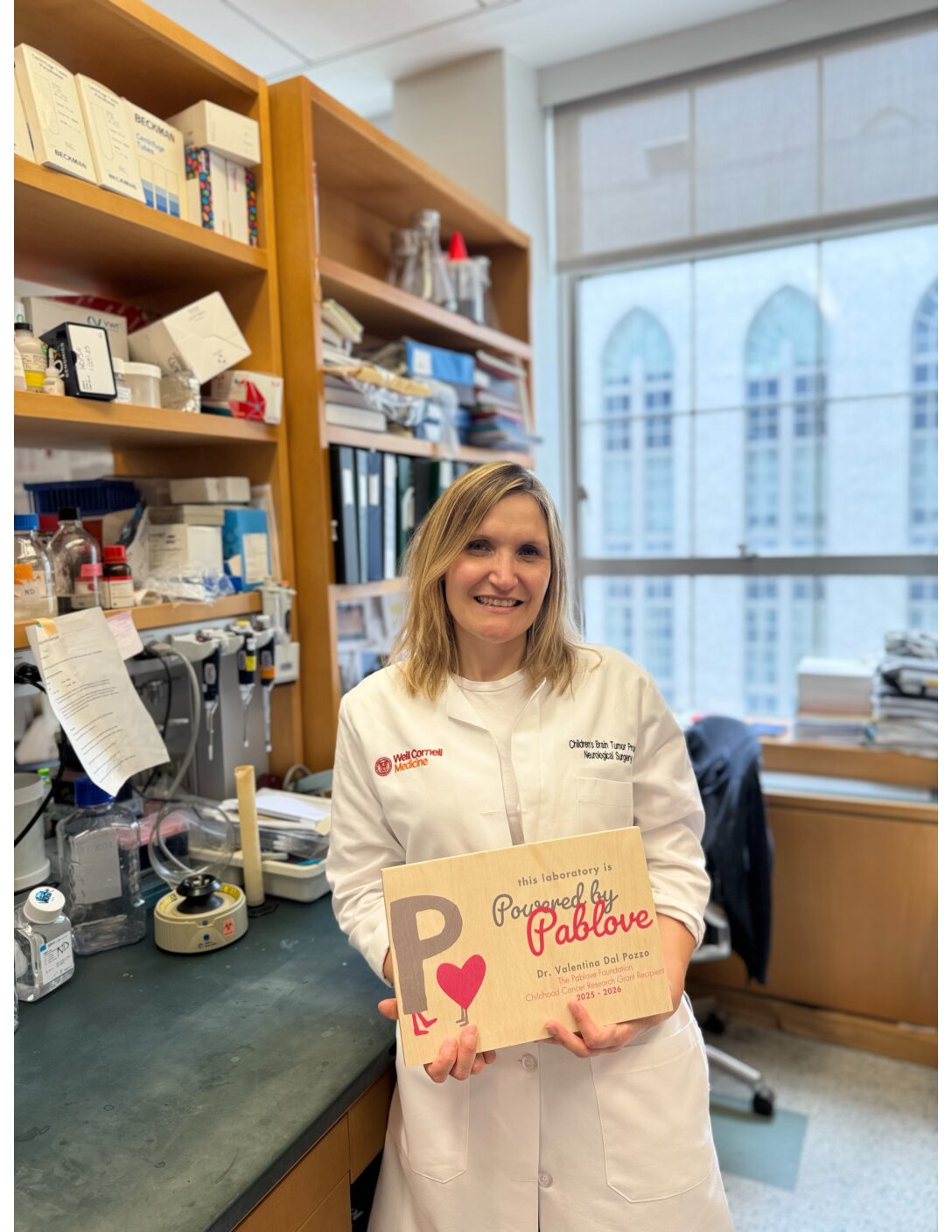Valentina Dal Pozzo, PhD
Weill Medical College of Cornell University
Developing novel MYC inhibitors for the treatment of pediatric brain tumors

Dr. Dal Pozzo’s research targets tumor cells in Atypical teratoid/rhabdoid tumors (ATRT) by inhibiting a specific family of proteins that cause typical treatment options to fail.
In Dr. Dal Pozzo’s own words:
Pediatric brain tumors are the most common cause of death from solid tumors in childhood. Atypical teratoid/rhabdoid tumors (ATRTs) are rare and aggressive tumors of the central nervous system (CNS) that occur in early childhood (by the age of 3) 1 primarily in the cerebellum. Current therapies for ATRTs include surgery, chemotherapy, and radiotherapy and are aggressive and debilitating; however, the prognosis is still poor with an average survival rate of 6 to 18 months 1,2,3. Thus, it is urgent to identify novel and more effective targeted treatments. The MYC family of proteins is deregulated in many cancers 4, including pediatric brain tumors such as ATRT and blocking their function constitutes a very appealing therapeutical approach. Until recently, approaches to inhibit MYC proteins have been unsuccessful 5. We have initiated a collaboration with the SkunkWorx-Bio company that has developed small biological inhibitors, including peptide-drug conjugates (PDCs), targeting MYC. PDCs deliver tumor-specific therapeutic effects by targeting cancer cells while limiting the toxic effect in surrounding healthy tissues 6. Our project will examine the efficacy of a novel PDC targeting MYC in decreasing tumor growth using preclinical models of ATRT. We expect that completion of our project will identify a new strategy for treating ATRT as well as other pediatric brain cancers such as medulloblastoma with MYC amplification and/or overexpression.